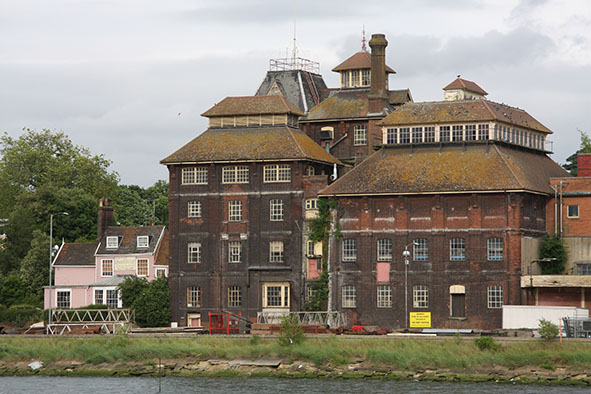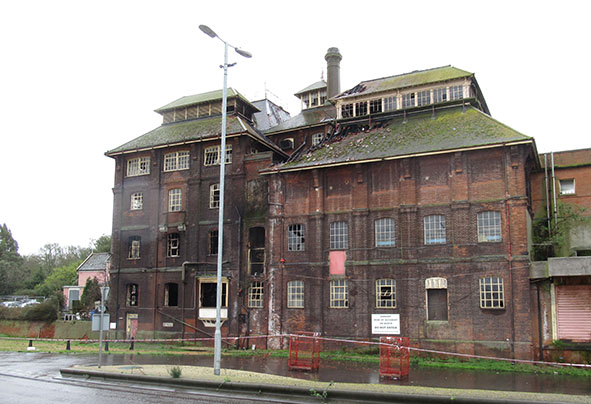- Screen Colours:
- Normal
- Black & Yellow
There are over a thousand iconic buildings in ‘Greater Ipswich’ recorded on some authorities’ lists somewhere. Currently the future of half-a-dozen give cause for concern. These buildings were designed by a decent architect, had an important use and have been deserted and unused for at least a dozen years. Many have suffered from water damage from leaking roofs, guttering and broken windows. Theft of important historic fittings can lead to use of the buildings by the homeless with possible subsequent further damage and fires. All of them are too expensive and too big to be undertaken as a project by a Building Preservation Trust.
All, bar one, are owned by developers who bought them to turn a profit which they find they can’t achieve. The cost of conversion to the standard required in the current state of the property market militates against action by the owners.
The one exception, 4 College Street, is owned by Ipswich Borough Council which has very recently allocated half a million pounds to its complete restoration.
Our Chair asked on ITV Anglia how society can ensure the restitution of such properties and indeed answer the problem of ‘zombie’ sites raised by Graham Day in the January 2020 Newsletter (Issue 218) – and Dennis Miller in this issue – is relevant. Ultimately, the problem relates to the private ownership of land. Whilst the principle of land owners being able to do what they like with their patch (as long its legal) persists, not much will change. At the moment, once you have received planning permission, they can either carry it out within the three years before it lapses, sell it or do nothing until times change and it seems more profitable for them to do something.
A personal view is that after, say, six years have elapsed the Local Planning Authority should have a right to call the owner to account; to find out what is happening and when. Pressure could then be applied by imposing a crippling Council Tax until something is completed. In these situations, it's vital that the law of unintended consequences isn’t enacted. Finally, compulsory purchase by the Council would have to operate; but in order to encourage developers to actually develop rather than hold land for better times, at the same price they purchased it!
Fantasies, especially in the current political climate!
Mike Cook

Above: spring 2019; below: February 2020
